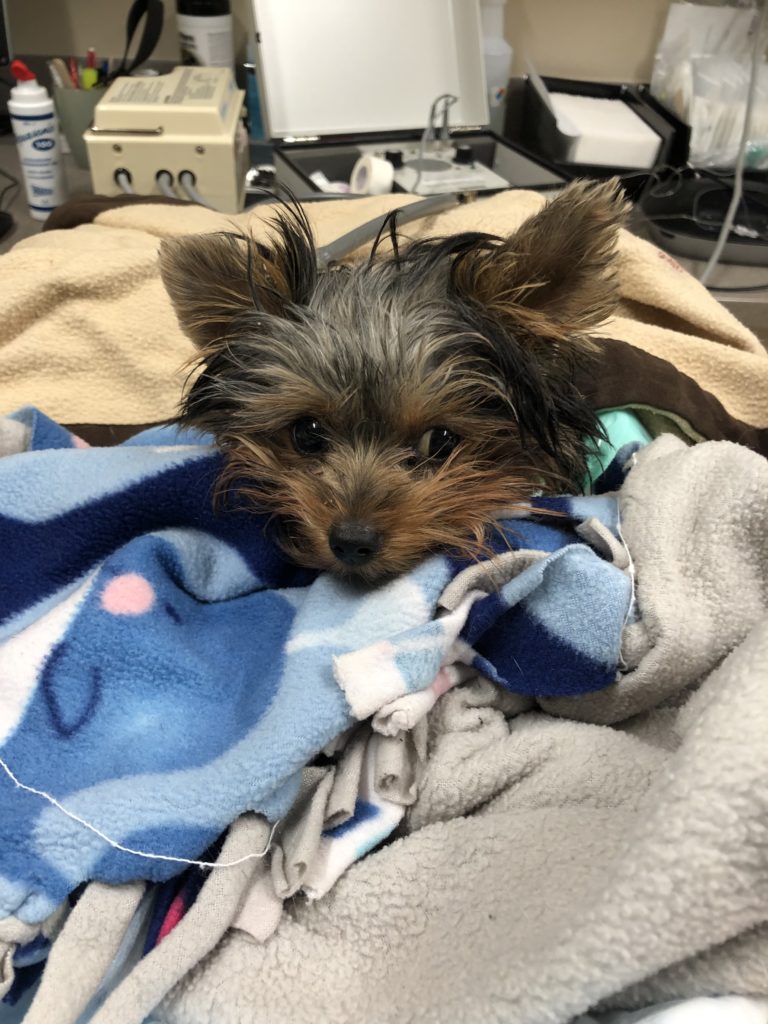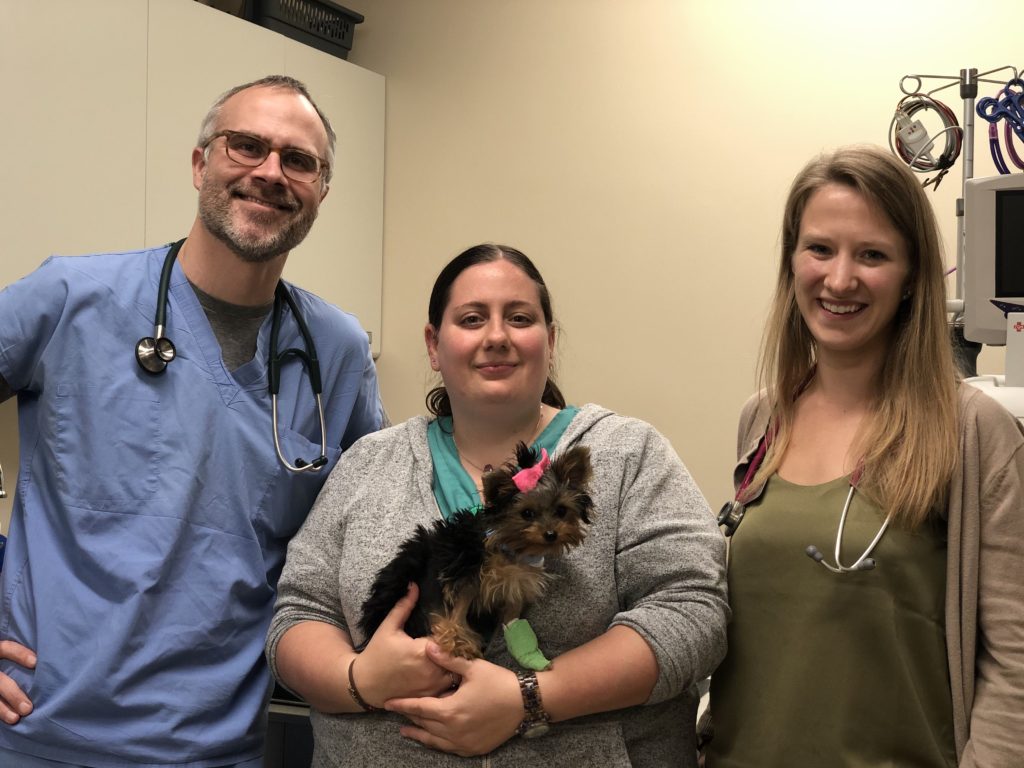Georgie, a 4 month old Yorkie puppy, acutely became lethargic with vomiting and a decreased appetite. Initial lab tests performed with her primary care veterinarian were within normal limits. She was hospitalized to receive supportive care. Over the next 48 hours her health took a dramatic turn for the worse. Georgie became anuric, hyperkalemia, and developed a progressive azotemia. Recognizing that she had an acute kidney injury, her primary veterinarian referred Georgie to Friendship Internal Medicine to receive hemodialysis.

Weighing 1.2 kilograms, Georgie was the smallest patient ever treated with hemodialysis at Friendship and is likely one of the smallest patients ever treated in the veterinary dialysis community. Treating small patients brings unique challenges. Their small blood volume causes a problem such that a significant proportion of her blood volume is held within the dialysis circuit. For Georgie, approximately 70% of her blood would need to be removed to fill the circuit. While the extracorporeal therapies team at Friendship has extensive experience treating small patients, Georgie wins the award for the smallest. To deliver dialysis safely, the team primed the dialysis equipment with blood so that Georgie’s intravascular volume and oxygen delivery would be maintained. Her blood pressure, ECG, and other vital signs were monitored continuously throughout the treatments. Georgie did exceptionally well with the dialysis treatments, which were able to normalize her hyperkalemia and return her kidney values to normal.
After 5 days of anuria, Georgie began producing urine again. Convalescent leptospirosis titers confirmed her acute kidney injury to be the result of Leptospira grippotyphosa infection. With proper antibiotic therapy and time, Georgie’s kidneys began to heal and repair themselves. She was discharged from the hospital after 10 days of care with normal kidney values.

Georgie has been home with her owner and is back to feeling normal. She is playful with a normal appetite and she continues to have normal kidney function. Her prognosis is excellent, however her kidney values will continue to be monitored periodically for any suggestion of permanent injury. Georgie’s medical care highlights the unique and advanced therapeutics provided by Friendship as well as the team-based approach that helped provide her with such an exceptional level of care. The Internal Medicine, Anesthesia, Critical Care, and nursing teams all played a critical role in proving such a good outcome. Georgie demonstrates how no patient is too small to receive dialysis at Friendship!

Dr. JD Foster is a Pennsylvania native and graduate of University of Pennsylvania’s School of Veterinary Medicine. He is a member of Friendship’s Internal Medicine service and leads the Extracorporeal Therapies service. Since 2018, he has also been the President of the American Society of Veterinary Nephrology and Urology. His professional interests include nephrology, urology, hemodialysis, and acute kidney injury.
